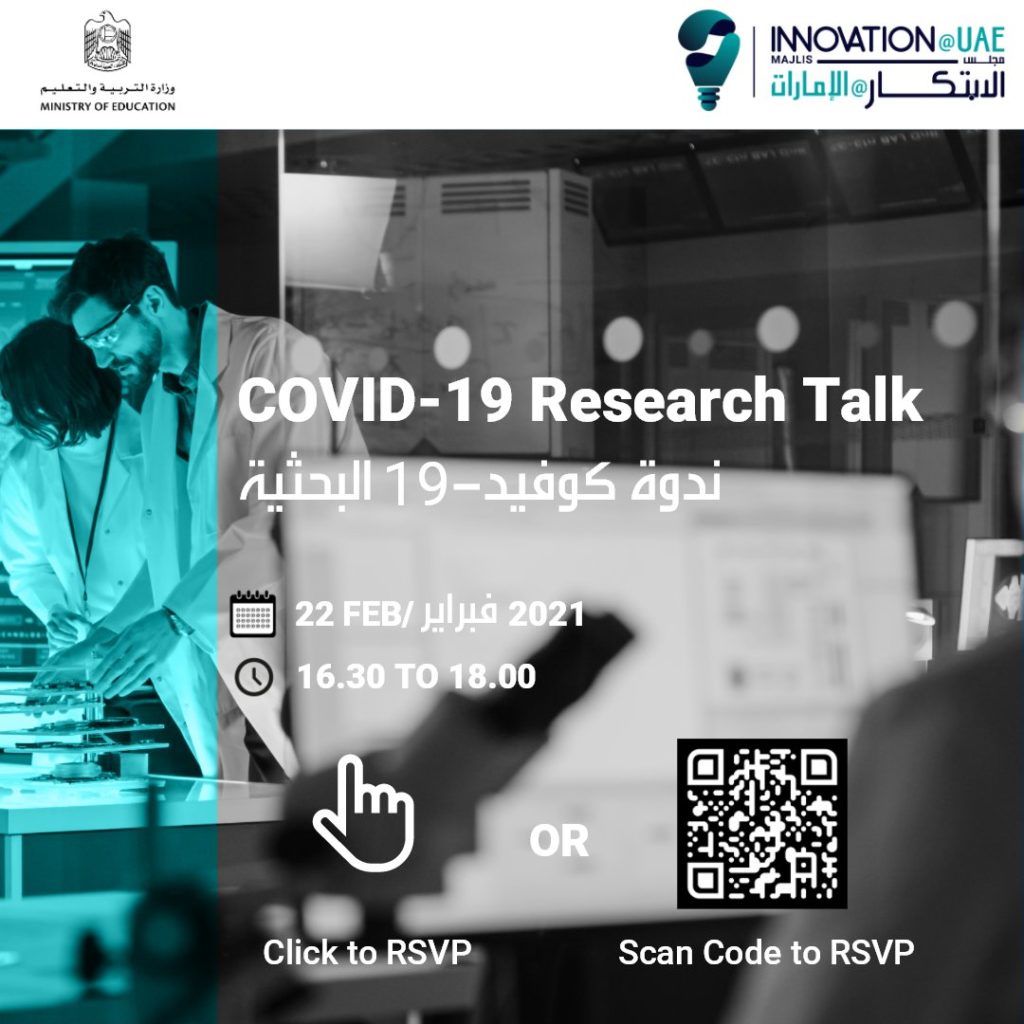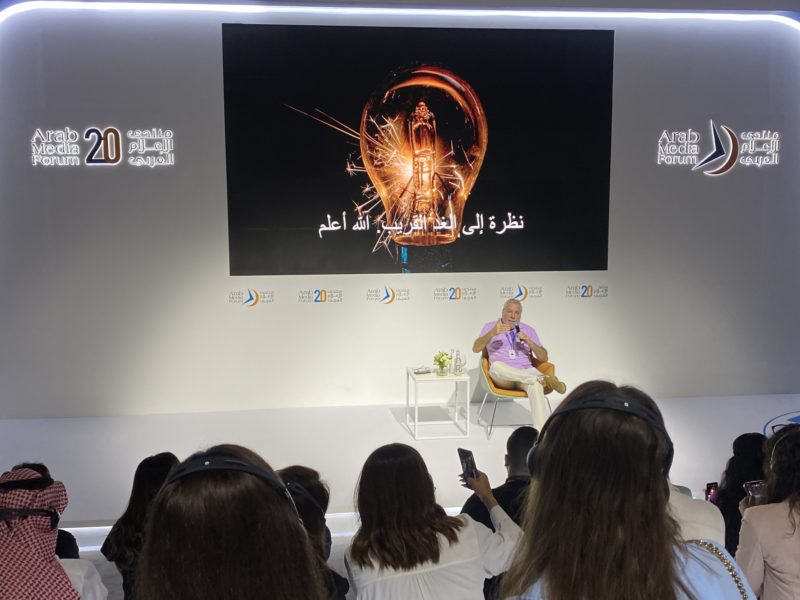Saliva Testing, Fake News Fight Among Innovative Research Projects at UAE Seminar

Saliva testing and the fight against fake news related to Covid-19 are two of the most innovative projects revealed at the latest scientific research talk series, Innovation @UAE Majlis, organized by the United Arab Emirates’ Ministry of Education this week.
Rifat Hamoudi, a professor at the College of Medicine and Head of Bioinformatics and Functional Genomics Groups at the University of Sharjah, presented his research on saliva testing and what is called “long covid,” a condition in which patients continue to feel symptoms for longer than usual after contracting the virus.
“Saliva testing will be painless, unlike the PCR, and its result will show up faster,” Dr. Hamoudi told the MBRSC Post. “It will be cheaper than both, the PCR and the blood tests. Through Saliva testing, we can also predict if the person will face severe symptoms, be asymptomatic, or recover quickly with barely any symptoms.”

The research can work on other viruses as well, said Dr. Hamoudi, and “it can tell us how vaccines enhance our immune system and which vaccine is the best for our bodies.”
The study requires to test hundreds of patients to understand how coronavirus mutates in one’s body, so it “might take long but the University of Sharjah is providing me all the support I need,” said Dr. Hamoudi.
Saliva testing was approved by the U.S. Food and Drug Administration on April 13, and it has since also been in use in some other places, like Hong Kong, Taiwan and Singapore.
The Dubai Health Authority (DHA) started using saliva testing for youngsters aged between 3 and 16 years in November because the PCR might be painful for them. The U.A.E. is trying to use saliva testing to better understand Covid-19, and thus, better tackle it.

Anoud Bani-Hani, assistant professor at the College of Technological Innovation at Zayed University in Dubai, is working on another issue related to the virus: the spread of “fake news” that, she said, “can be really harmful.” Using specific codes, algorithms, and three-dimensional data fusion, “we can detect fake news, fabricated tweets, and tackle propagation,” said Dr. Bani-Hani. “We designed and developed semantic knowledge graphs that can help place data in its correct context along with its reasoning.”
But the amount of fake news on the Internet and in social media is such that the artificial intelligence tools may not be able to detect 100% of these false information. In that case, “we will have to rely on people’s awareness,” Dr. Bani-Hani said. “Check the sources and rely on the official ones, do not share information if you are not sure of them, and most importantly, use your common sense.”


